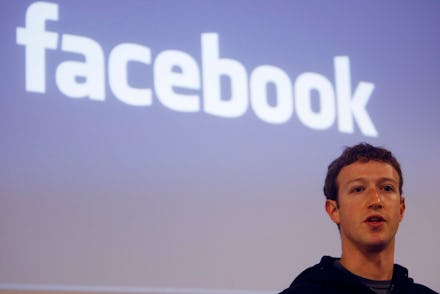Facebook plans to influence public opinion and politicians with NRA-style lobbying group

Facebook has been on the receiving end of unrelenting scrutiny over the last couple of years, particularly from lawmakers and regulators who have started to crack down on some of the company's behavior. In order to get back on their good side, Facebook has a new plan: throw money at the problem. According to a report from the Washington Post, the social network giant is quietly working to set up a new political advocacy group called American Edge.
According to data collected by the Center for Responsive Politics, Facebook is no stranger to lobbying efforts. The company dropped a cool $16.7 million last year to influence decision-makers in Washington, and another $5.2 million during the first quarter of 2020. But American Edge will operate a bit differently than Facebook's previous lobbying attempts. According to the Post, American Edge is being formed as a nonprofit organization, incorporated in Virginia, and will operate closer to how an organization like the National Rifle Association does: money can pour in from donors and be used to run ads and try to sway public and political opinion, all without requiring the organization to disclose its donors. American Edge will also reportedly fund studies and academic research that will be used to make the case for the tech industry's interests.
Facebook is reportedly not the only entity in Silicon Valley working with American Edge, but it is one of the driving forces behind the organization. When asked about its role in the political advocacy group, a spokesperson for Facebook tells Mic, "The US leads the world in technology and we should be proud of that fact and promote it. We’re working with a diverse group of stakeholders to help build support for our industry, and while we’re leading an effort to start this coalition, it’s one of many we are contributing to and supporting.”
The company and many of its cohorts in Silicon Valley have plenty of issues that they would like to place a thumb on the scale for as lawmakers start to get serious about regulating Big Tech. Companies including Facebook, Google, Apple, and Amazon have all drawn ire from regulators for potential antitrust violations. Facebook has been the hardest hit of the bunch in recent years as its failure to protect user data resulted in some massive fines. That includes a $5 billion wrist slap from the Federal Trade Commission — the largest penalty ever handed down by the agency — for the Cambridge Analytica scandal, an incident in which Facebook allowed a private political consulting firm to scrape data from more than 50 million Facebook users without their consent. Over the course of the last year, Facebook faced an additional $152,853,047 in settlements and fines, according to Slate. That doesn't include the $52 million settlement the company agreed to just last week that will pay moderators for mental health issues developed while working on Facebook's platforms.
Given the company's continually increasing toll of penalties and payouts, investing heavily in a lobbying arm that can get the rules changed in its favor might just prove cheaper in the long run. Chris Hoofnagle, professor of law and faculty director for the Berkeley Center for Law and Technology and the University of California, Berkeley, tells Mic that the point of lobbying groups like American Edge is "to buy industry time, to weaken government resolve, and to raise arguments that companies can’t make directly. What the public doesn’t understand is that delay is almost always a public policy win for technology companies." He notes that even the name of the group, American Edge, is designed to position Facebook and other tech companies as patriotic and as contributing to the nation's strength — something that Facebook evoked in its own statement regarding its involvement in forming the lobbying group.
"Facebook will say that patriotism requires no privacy rules," Hoofnagle says. "Knowing Facebook, the company tested the nationalist technology leadership message and found that it resonated." However, he notes that Facebook has to deliver this message through a lobbying group because the company also views itself as an international entity and has interests in countries like China and India. For that reason, Hoofnagle argues, "Facebook cannot make the pro-America argument directly. ... Thus to make the America tech patriot message, Facebook has to hide behind others."